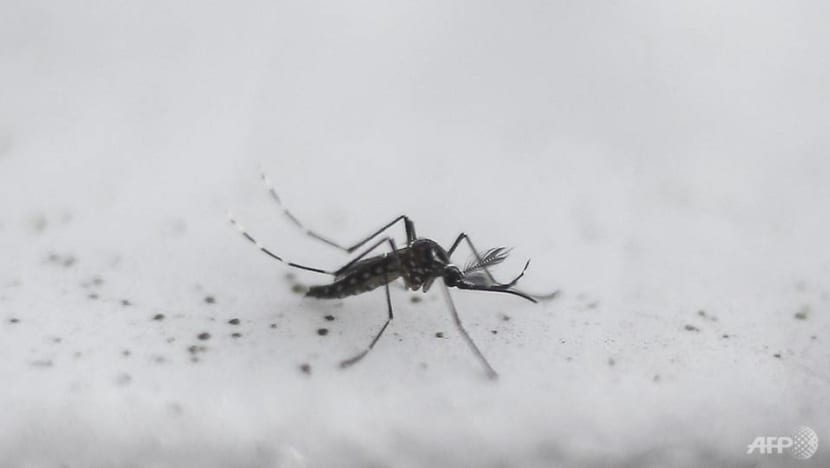22 Zika cases in Singapore in the first half of 2023: Grace Fu
Most of these were found in a cluster in Kovan, while the remaining cases were isolated.

An Aedes aegypti mosquito. (File photo: AFP/Miguel Schincariol)
SINGAPORE: There were 22 Zika cases in Singapore in the first half of this year, Minister for Sustainability and the Environment Grace Fu said on Wednesday (Jul 5).
A total of 15 cases were found in a cluster at Kovan. The cluster is now closed and is currently under surveillance, while the other seven cases were isolated, Ms Fu said in a written reply to a question by Member of Parliament Melvin Yong (PAP-Radin Mas).
The numbers reported are as of Jun 30.
"The National Environment Agency is monitoring the situation closely and will continue to work with grassroots leaders on outreach efforts in and around the localities where Zika cases were reported," Ms Fu said.
Mr Yong had filed a Parliamentary question asking for an update on the Zika situation in Singapore, and if Project Wolbachia could be used to combat Zika alongside dengue.
Under Project Wolbachia, male Aedes aegypti mosquitoes that carry the Wolbachia bacteria are released in an urban environment. They mate with the female Aedes aegypti so that the resulting eggs do not hatch due to incompatible matching.
This will reduce the urban Aedes aegypti mosquito population over time and decrease the potential spread of diseases such as dengue.
The Zika virus is transmitted primarily by the same Aedes aegypti mosquito, so Project Wolbachia has the potential to reduce the risk of Zika outbreaks as well, Ms Fu said in response to Mr Yong's query.
However she stressed that Project Wolbachia is meant to complement and not replace good housekeeping and basic preventive actions that prevent mosquito breeding.
"We are currently in the midst of the dengue season. I urge all residents to ensure that their homes and surroundings are free of stagnant water, and to take precautions if residing in dengue cluster areas, such as spraying insecticides in dark corners, applying insect repellent and wearing long-sleeves and pants," Ms Fu said.


















